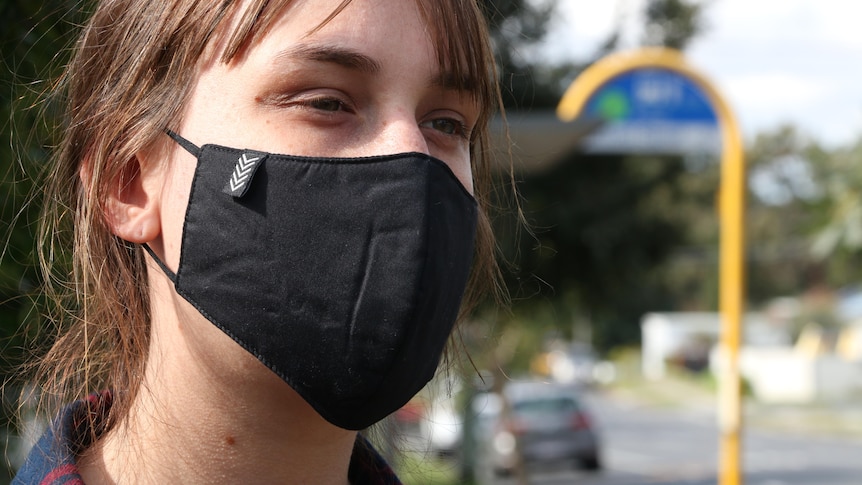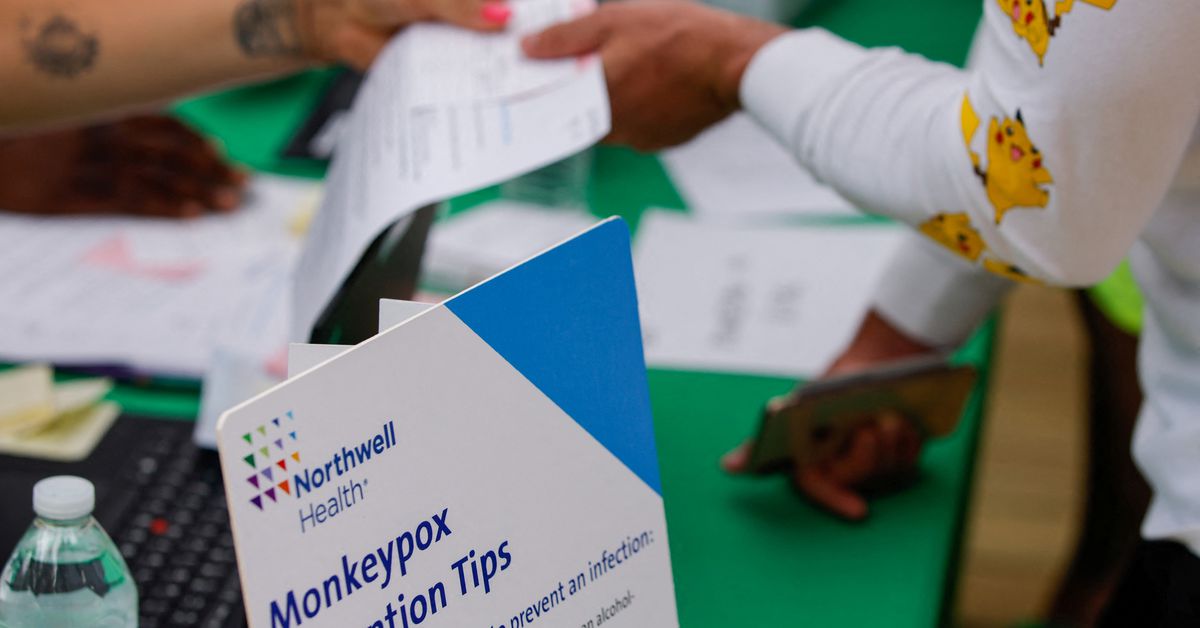COVID-19 threatens to thwart many Queenslanders’ Christmas plans for a third consecutive year, but the New Year brings the hope of next generation vaccines that may better dampen virus transmission.
Key points:
- Experts are warning waves of COVID to continue indefinitely
- More than 65 per cent of Queenslanders aged 65 and older have received four doses of a COVID vaccine
- Experts say “variant-specific boosters” and nasal vaccines will be rolled out to the public in 2023
With experts predicting COVID waves to roll on indefinitely, Queenslanders are being urged to prepare for a “new normal”, with mandatory mask wearing expected to continue in “vulnerable” settings, such as hospitals and aged care.
Chief Health Officer John Gerrard this week tentatively forecast the next COVID wave to begin in December, although he said it was impossible to predict its severity.
While the third Omicron wave has peaked, Princess Alexandra Hospital Director of Infectious Diseases Geoffrey Playford called on the public to remain vigilant by continuing to wear masks when unable to socially distance and to stay up to date with their COVID-19 vaccines to protect themselves and “keep our healthcare system going as best as it can”.
“We’re all aware in other societies, particularly in South-East Asia, and North Asia, that mask wearing has been a part of normal business, normal society for quite some time – well before COVID-19,” Dr Playford said.
“It may well be that’s where the rest of us go as well.
“Humans are incredibly adaptable, and I suspect we will just get to a new normal that we’ll accept as the normal moving forward and we will adapt to that.
“I doubt it will get back to the old normal.”
Hospital balancing act an ‘enormous challenge’
As the fourth year of the pandemic looms in 2023, Dr Playford said the unprecedented coronavirus pandemic had left healthcare workers concerned about the management of other diseases, unrelated to COVID, moving forward.
“People’s cancer screenings, people’s cancer management, all the other non-COVID-related health conditions need to be managed as best as we can side by side with the COVID response,” he said.
“Patients who have COVID need to be managed in specific areas of the hospital and that’s over and above all the other pressures upon our healthcare system and our hospital beds.
“That’s been an enormous challenge trying to balance both.
“Although COVID is circulating within the community and will always circulate within the community … we shouldn’t just be accepting transmission without trying to reduce it as much as possible.
“That takes the pressure off the healthcare system and allows all the non-COVID-related conditions to get the appropriate management that they deserve.”
In Queensland on Tuesday, 710 people were taking up hospital beds with COVID – down about 36 per cent from the third wave peak of 1,123 on July 26.
The state also recorded 24 COVID deaths in the previous 24 hours, taking the total since the pandemic began to 1,677.
‘Variant-specific boosters’ and nasal vaccines set to roll out
Federal Health Department data shows 65.81 per cent of Queenslanders aged 65 and older have received four doses of a COVID vaccine – just above the national average of 64.87 per cent.
While the first generation of vaccines have not generated herd immunity – creating immunity within the population to effectively quell the spread of COVID – they have been highly successful in reducing hospitalization and death.
Infectious disease physician Paul Griffin said 2023 should see the availability of second-generation COVID jabs, including a “variant-specific booster”, that may be better at hosing down infections.
“We’re going to get improved tools to combat this virus,” he said.
“If we get a vaccine next year that’s a little bit better at blocking infection, that will go a very long way, if the uptake is good, of course, of reducing the burden of the virus.
“The Omicron-specific vaccines will do that, hopefully, to a better degree.”
Dr Griffin also foreshadowed the possibility of a nasal vaccine being available next year that looks “very promising” in reducing the spread of SARS-CoV-2, the virus that causes COVID-19.
“I think we’ll get some additional vaccine options next year, which will hopefully be of greater help in terms of reducing the overall burden of the virus that’s around,” he said.
“There’s well over 100 vaccines still in clinical trials.”
Outbreaks in aged care homes in decline
Until the emergence of better vaccines, Dr Griffin joined Dr Playford in urging Queenslanders to keep wearing masks in high-risk venues, to stay up to date with their booster doses of first-generation COVID shots and when they are infected with SARS-CoV- 2, to access anti-viral medication, if eligible.
“We’re not back to normal,” he said.
“Being back to normal is probably some time away but if we get the basics right, we’ll be able to enjoy a quality of life that will be very close to what we had pre-pandemic.”
For the first time in weeks, Australia’s weekly COVID-19 aged care report shows the number of active outbreaks in nursing homes to be trending down.
Queensland reported active outbreaks in 201 aged care facilities – down from 231 the previous week.
While Paul Sadler, the interim CEO of Aged and Community Services Australia, described the signs as “positive”, he said that they still represented about 40 per cent of aged care facilities in Queensland with active COVID outbreaks.
“It’s far from over and the expectation is we will continue to see elevated levels of outbreaks and infections through August and probably into September,” Mr Sadler said.
More than four in five Australian aged care residents have received a fourth dose of vaccine.
Mr Sadler said some facilities had needed to cancel booster clinics because of outbreaks.
“In many cases, those services have been rebooked for some time in August. We are confident … that the vaccination rate will continue to improve,” he said.
Mr Sadler said 99 per cent of Australia’s 2,700 aged care facilities had reported COVID cases in residents or staff during the pandemic, compared with 63 per cent of Canadian nursing homes.
“It’s very striking,” he said.
“That statistic about this disease getting into all bar one per cent of aged care homes nationally just shows that we’re fighting something that’s a considerable threat to aged care services and particularly, to older people who live in them.”
.




